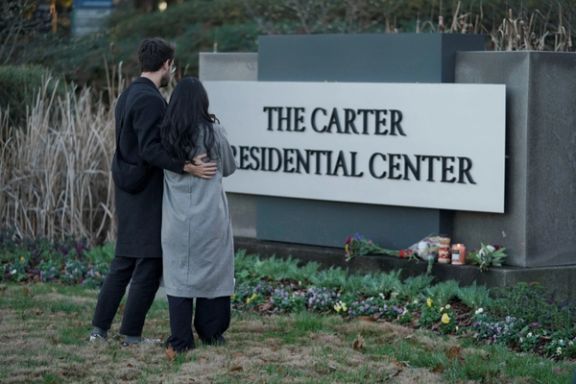Jimmy Carter, blamed by many Iranians for the revolution, dies at 100
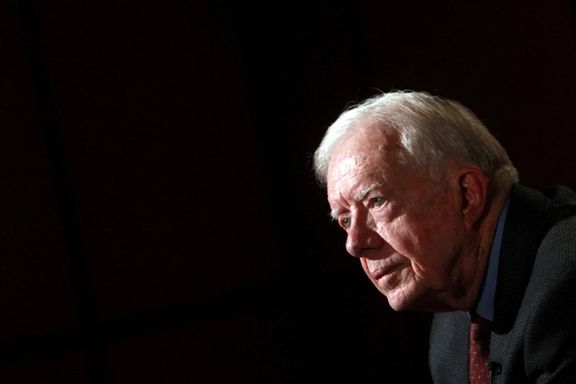
Jimmy Carter, the 39th US president, blamed for the 1979-1981 Iran hostage crisis and, by many, the rise of the Islamic Republic, has died at the age of 100.
President Joe Biden announced that January 9 will be a national day of mourning throughout the US. "I call on the American people to assemble on that day in their respective places of worship, there to pay homage to the memory of President James Earl Carter," Biden said.
Carter, a Democrat, assumed office in January 1977 but his one-term presidency was marked by the highs of the 1978 Camp David accords between Israel and Egypt and conversely, the 444 day hostage crisis which saw more than 50 Americans held captive in the US embassy in Tehran.
It is not only in Iran that the former statesman has become a divisive figure. Even in the US, the Washington Historical Association says that “The Iran Hostage Crisis was one of the most important issues of Jimmy Carter’s presidency and likely one of the reasons for his election loss in 1980,” losing in a landslide to Ronald Reagan in 1980.
The US State Department is today more open about the failings of Carter's administration. While at the beginning of Carter’s presidency, the United States and Iran were allies, today, they say, “The Iran hostage crisis undermined Carter’s conduct of foreign policy”.
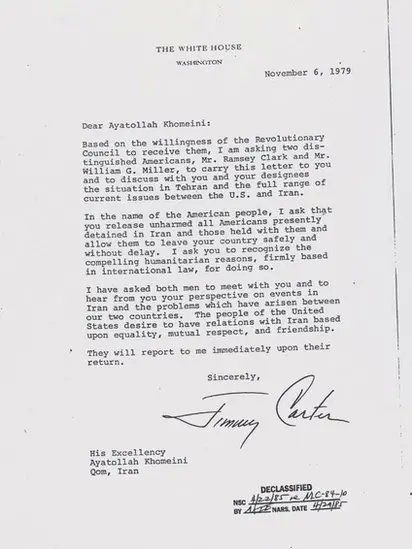
Like last year’s hostage crisis under Joe Biden in which five dual-nationals were released by Tehran for $6 billion of Iranian frozen funds, the crisis dominated the headlines and made the administration look weak, in echoes of history repeating itself.
When Secretary of State Cyrus Vance opposed a mission to rescue the hostages in Iran in favor of diplomatic channels, the administration was left wide open for the incoming Reagan presidency.
In a 2014 interview with CNBC, Carter tried to justify the disaster that led to his election defeat, failing to admit that it was on the very day his rival was sworn in that the release of hostages took place. American television networks broadcasting Reagan's inauguration, showed hostages on a split screen boarding a flight to the United States.
Carter said: “I could have been re-elected if I had taken military action against Iran. It would have shown that I was strong and resolute and manly. ... I could have wiped Iran off the map with the weapons that we had. But in the process a lot of innocent people would have been killed, probably including the hostages. And so I stood up against all that advice, and then eventually all my prayers were answered and all the hostages came home safe and free.”
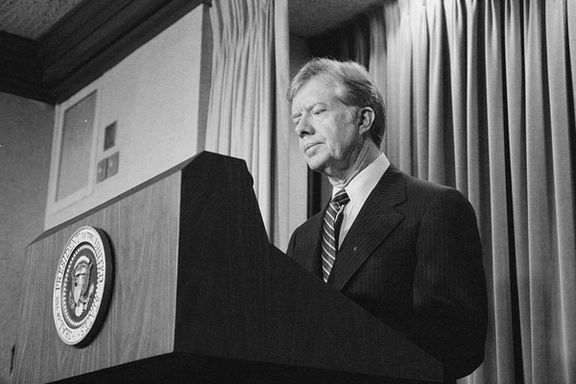
Relations before the 1979 Islamic revolution had been strong between Iran and the US. Carter even called Iran during the monarchy “an island of stability in one of the more troubled areas of the world” during a visit to Tehran and maintained a strategic relationship with the Shah, Mohammed Reza Pahlavi.
However, this relationship was contentious for both nations. In November 1977, President Carter and First Lady Rosalynn Carter hosted the Shah and his wife, Empress Farah Pahlavi, at the White House for a State Visit.
Protests broke out between the pro and anti-Shah factions which ended up with over 100 protesters injured as well as police officers. It further pushed Iranians into the hands of the incoming Islamic Republic and its narrative of anti-US policy, which continues to today.
After his January 1979 exile of the Shah, suffering from terminal cancer was allowed to receive medical care in New York, but he later decided to spend his remaining days in Egypt. He was buried with full honors in a Cairo mosque.
Just 16 days after the Shah left, the incoming Supreme Leader, Ruhollah Khomeini, returned to Iran to a thunderous welcome, paving the way for the Islamic Republic’s birth, with the US embassy first attacked in those initial days after.
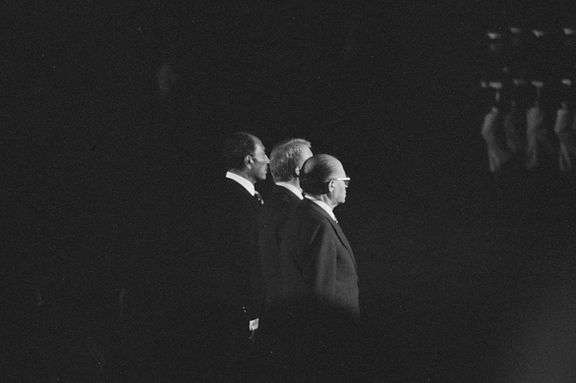
In Iran, sentiment against the US grew when Carter allowed the exiled Shah into the US for what Carter believed to be life-saving medical treatment in October 1979, one of the final triggers leading to the hostage crisis.
Carter failed to grasp the magnitude of sentiment against the Shah by Iranians in Iran and abroad in the heydays of the revolution, many thinking it was part of a plan to return him to power. Again, it led to demonstrations around the US embassy.
The legacy of Carter’s Middle East policy will now always be torn between the historic peace deal he secured between Israel and Egypt, while for others, it will be the failings of his policy on Iran.
In 1984, during a national debate with Walter Mondale, Reagan blamed Carter for the fall of the Shah, who he said had been a major ally in the Middle East.
He said: “The shah, whatever he might have done, was building low-cost housing and taking land away from the mullahs and distributing it to the peasants so they could be landowners. ... But we turned it over to a maniacal fanatic who has slaughtered thousands and thousands.”
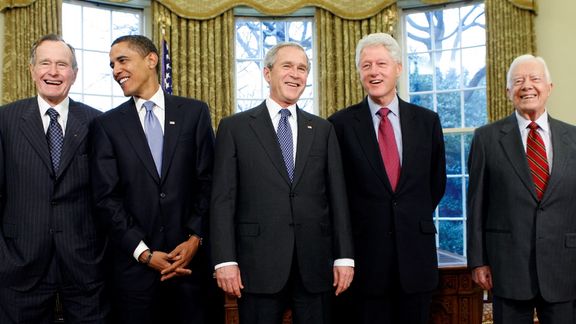
Many Iranians have already spoken out against Carter. Political researcher Arvin Khoshnood wrote on X: “He bears responsibility for the deaths of hundreds of thousands of Iranians. By actively supporting Khomeini and enabling the Islamic Revolution, Carter is complicit in every life lost to the regime’s brutality and inhumane policies over the past 45 years.”
Israel’s President Isaac Herzog said of Carter: “In recent years I had the pleasure of calling him and thanking him for his historic efforts to bring together two great leaders, [Menachem] Begin and [Anwar] Sadat, and forging a peace between Israel and Egypt that remains an anchor of stability throughout the Middle East and North Africa many decades later. His legacy will be defined by his deep commitment to forging peace between nations.”
Egyptian President Abdel Fattah al-Sisi said in a post on X: ”His significant role in achieving the peace agreement between Egypt and Israel will remain etched in the annals of history.”
